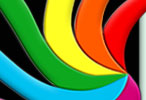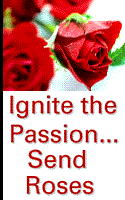

| |
|
|
|
|
|
|
| |
|
|
|
|
 |
| |
| |
| |
| |
| |
| |
| |
| |
| |
| |
| |
| |
| |
| |
 |
| |
| |
| |
| |
| |
| |
| |
| |
| |
| |
| |
| |
| |
| |
| |
| |
| |
| |
| |
| |
| |
| |
| |
| Where
to Meet Women Expert Interview Questions for Match.com By Tracie Potochnik www.match.com Tracie
Potochnik (TP): Why does it sometimes seem so difficult to meet other lesbians? Tracey Stevens (TS): Since LGBT people make up around 10 to 20 percent of the population, it can be slim pickings as far as finding someone to date or even be friends with. Add the fact that like the rest of society, many people in the LGBT population are suffering from societal issues that can be very self-destructive, like alcohol or drug abuse, self-esteem issues, mistrust issues, or religious issues, makes finding a person who can be considered "fairly normal" a rarity for most. If you consider that many of us do not live in areas where being LGBT is fairly accepted, thinking of Boston, San Francisco, LA, and some of our bigger cities, it makes meeting someone really difficult. Cathy Wonder (KW): To add to that, I think women get reticent to make a foray out into the world, especially when they are first coming out. Not knowing who to trust, and if this is what they really want are things I've heard quite a bit from women first coming out. If we are in a negative space in our own heads, then we tend to find those things to reinforce whatever the negative is. If we focus on the positive, we tend to find that more. An example would be a woman who has been burned in relationships in the past and is now deciding she wants to find a new relationship. If she focuses on the idea that she doesn't want a certain type of partner, she will tend to be more likely to dismiss others that come into her life that may be a good match but she see's her ex, or ex's, in each person. When this happens, a person will usually isolate more. I've talked to many women who are in this position. TP: What are the special challenges faced by lesbians who live in places other than major urban areas? TS: There are many challenges for women living anywhere, but it's can be especially tough to live in smaller cities and towns. Some of the problems deal with homophobia where many of us are discriminated against for housing, in our jobs, or at schools. I grew up in a small town in Florida, and it sure wasn't easy dealing with prejudice and homophobia. Because of small-town narrow-mindedness, many LGBT people stay closeted and feel they can not come out and live an authentic free life. This can cause problems as far as finding other local women who are lesbian.- KW: certainly agree with Tracey on this. It is harder in more rural areas. Where we live is a very liberal pocket surrounded by some very backward thinking areas. There are places where it is well-known that if you are different in race or sexual orientation, you better not be there after dark. This is especially true if someone grows up in a very religious setting and is very active in their churches. As we all know, most religions are not supportive of LGBT people or their lives; to realize that you are lesbian and then know that is counter to how you were raised can be overwhelming, and create a severe emotional turmoil and crisis of faith. We find a lot of this in areas where religion is a major support for people. I can't speak to this much above the Mason-Dixon line but I can for the Southern Bible Belt. TP: Imagine you just moved to a small town or rural area, or live in such an area and have just come out. How do you meet other lesbians? What types of places, community organizations, social groups, etc. are good for meeting lesbians, and how do you find out about those places/organizations/groups? TS: We are everywhere! I met my first girlfriend in a tenth grade creative writing class. My second one I met through friends in college, and the one I am with now, my life partner, I met in a post office. You just never know where you might meet someone, but some examples of lesbian hangouts are sports and animal activities, coffee houses and books stores, and online groups and chat rooms. A lot of lesbians loves sports: volleyball, soccer, basketball, and softball are the biggest team sports that attract wonderfully athletic women of all shapes and sizes. Of course not all of them are gay, so have your Gay-dar on full power before you approach your favorite female “jock.” Other sports that attract lesbians are tennis, golf also known as “Dykes on Spikes,” fishing, swimming, canoeing, hiking, biking, kayaking, track, dirt-biking, water and snow skiing, and horse sports, which leads to many of us being animal lovers. You can find lots of lesbians at local dog and horse shows, in veterinarians’ offices, or walking Rover down a trail. Look for us at pet stores, pet adoptions, and training clinics. When we take our dog to the dog park, it is almost like Gay Day at Disney World. Got a lesbian/gay coffee house or bookstore nearby, or how about the lesbian section in your local big book store chain or your library? You can find lesbians hanging out in these places too. You can also find lesbians in LGBT bars, though I’ve always heard, “You’ll never find your true love in a bar,” and I have yet to know of anyone who has, but why limit yourself? Just play it safe and have a way to get home if you become intoxicated. I’ve heard of several horror stories of lesbians being harassed by police or homophobes after leaving a bar or dance club, so be careful. Another place to find lesbians is Lesbian clubs and groups. Where Kathy and I live there are several lesbian clubs, such as the Lesbian Hiking Club, a professional lesbians’ club, a singing group, and a couple of lesbian writing groups. Some colleges and universities have lesbian or feminist organizations, or you can contact a local NOW chapter to find out what’s going on in your area. These are great places to make friends and meet single women. KW: That is certainly a list that covers a huge amount of possibilities. I can only add a few. The on-line sources are major. Before the internet it was a hit or miss proposition. Now you can just search for lesbian and your city, geographic areas, etc and come up with a huge list of groups. Match.com and other dating services that include lesbians is another option. Picking up a local freebie paper that lists all sorts of special interest groups is also an option. In our area that paper is "Mountain Express," in other's there is "Creative Loafing." I've seen that publication in Charlotte, NC and Tampa, FL. Each edition is specific for their geographic area. Some more rural areas have groups that form or may have a LGBT church. The internet is great for that too. Just put in a search for lesbian/gay churches and your geographic area or city and you could be very surprised how this would pop up. If you aren't someone who is interested in the bar scene, it wouldn't hurt to go a time or two and see if you can find out about area groups, if you don't have anything like the free papers I've mentioned earlier. You may just find out about a local group that you could join. Where we used to live in FL, there was the PGLA (Polk Gay and Lesbian Alliance), they did movie nights, pot luck dinners, softball, all sorts of activities. I do want to say, if you go to a bar be careful about drinking and driving. I am running groups of folks that have gotten DWI's/DUI's. It takes less alcohol than people would realize to reach the level that most states have for legal intoxication. The following site is a good resource to check and see by your weight and sex what your blood alcohol level would be after you drink one, two, five or more drinks: http://www.beerboozebooks.com/bal.htm#estimating If you are in recovery from addiction, there are LGBT recovery groups for AA and NA in some areas. We do have a LGBT AA in our area and it is hard to know which groups are LGBT. The one here is named Lambda so if you look for key words like that in a meeting name that will give you an idea if the group is LGBT or not. Also, if you look on-line at the AA or NA sites, you may not find an entire list of meetings. You would be better off searching for your city and state or geographical area and AA or NA and meetings and listings will come up. TP: How can the Internet be of help? TS: The Internet has been a huge step forward in respect to lesbians worldwide. At our company, we have over 675 members from all over the world in our online Support For Lesbians Coming Out Group, and over 1,000 members in our Regional Networking Groups. Some other places to find lesbians online are in chat rooms, e-mail groups, and dating sites. KW: Funny, I've covered a lot of this answer before we got here. Tracey has covered a lot more. There are also groups for butches, femmes, LGBT social consciousness groups, etc. The list is huge. Just go online and see what you can find. TP: Are there national resources or organizations that might have local chapters and/or be able to help you connect to your local LGBT community? TS: There are many national organizations that are there for LGBT people worldwide. There are many organizations that fight for our rights, like: ACLU (American Civil Liberties Union), GLAAD (Gay & Lesbian Alliance Against Defamation), GLSEN (Gay, Lesbian and Straight Education Network), LAMBDA GLBT Community Services, National Center for Lesbian Rights (NCLR), National Lesbian & Gay Journalists Association, National Gay and Lesbian Task Force (NGLTF), and the Human Rights Campaign. Places that are local for support are Parents and Friends of Lesbians and Gays (PFLAG), and many churches are now opening their doors to LGBT people such as Metropolitan Community Churches (MCC). Most LGBT and weekly newspapers list other resources that you can find locally, such as support groups and category groups--like lesbians who love to camp or hike. KW: I just went out and did a quick search under lesbian gay churches and this site came up: http://www.gaychurch.org/ This is the first paragraph on their site: "Gay Church is a web site dedicated to ministering to the gay and lesbian Christian community (GLBT) and friends of our community. We feature one of the largest gay and lesbian welcoming Christian church directories and bulletin boards in the world. Network with other homosexual Christians!" It's ironic that the internet has become such a part of our lives I don't think of it as a separate resource. TP: In smaller towns, it might be difficult to be out or visible. What are some ways to tell if a woman that you meet (in a non-gay specific social situation) is also a lesbian? TS: This is a really hard question to answer, because not all lesbians are stereotypical. It also has to do with a honed Gaydar sense--where you just know that someone is lesbian the moment you meet her. Most times if you don't have Gaydar, then hopefully the other woman will, and she will give you a little knowing look. She might even say something to you outright, although this hasn't happened to me very often. One thing you can do is to know symbols people associate with being LGBT. We have a whole section in our Coming Out Guide that is devoted to the cultural symbols and what they mean. Some of those symbols are the rainbow flag, freedom rings or triangles (usually worn on necklaces which are also rainbow colored), the Lambda Symbol (kind of looks like a wishbone), and pink and black triangles. KW: The other things that come to mind are listening to the language women use. If they are always talking about "we" did this or that, or they give no gender when talking about activities they have done with others, or talk about women and spending time with "friends" a lot and never mention a man, these are pretty strong indicators. That doesn't mean you won't get straight women that do these things in conversation, but not many will. I have found a growing number of straight people referring to their boyfriends or girlfriends as partner or life partner. Somewhat confusing when you hear this and the gay-dar doesn't go off. TP: Do you have any other thoughts or final words of advice? TS: My advice as far as pursuing a relationship with another woman would be give yourself as much time as you need to be comfortable, but one little warning here, especially if you really like the person and you really feel attracted to her--if at all possible, I wouldn't string her along for months and months. The reason there are so many U-haul jokes about women getting together so quick, is because it can be mighty slim pickings as far as finding someone who is: #1: compatible with you #2: mentally stable and healthy #3: not a drug addict or alcoholic I'm not trying to scare anyone, but from what I've seen after 30 or so years of being out, there are a lot of unusual people in our community, so if you find someone who is all three of the things listed above, I'd sure give her a chance. KW: It is along the lines that Tracey gives. Mine is to not rush into the U-haul syndrome. Know that lust is not love but can be confused. Many of us, and I've done this myself in the past, jump into relationships based on a sexual attraction and then, once we move in together and the newness of the romance wears off, start to realize that we really aren't compatible and that we just can't stay together. If we would spend time getting to know each other more, spend time without the sex and then move into a relationship, we would have a relationship based on a friendship and not just a physical attraction. These are the strongest and most lasting relationships, those that start out with a friendship. This is very hard for some women when they first come out, especially if you haven't had a good sex life and you realize its because you are lesbian and you've only been with men, that lends itself to an unfulfilling sex life. You can't help but want to take your newly found sexuality out for a test drive. If you are the type that is monogamous, this can lead to the U-haul joke. If you are polyamorous then it might not be such a problem. Tracey Stevens and Cathy Wonder Co-authors of "Lesbian Sex Tips: A Guide for Anyone Who Wants to Bring Pleasure to the Woman She (Or He) Loves" and "How To Be A Happy Lesbian: A Coming Out Guide" Their website provides over 1,000 free community services for lesbian and bisexual women worldwide! http://www.amazingdreamspublishing.com |
Amazing Dreams Publishing
International Website For
Lesbians, Bisexual and Questioning Women
PO Box 1811, Asheville, NC 28802
HOME • ABOUT US • PRESSROOM • NEWSLETTERS • FOLLOW US • SITE MAP
AFFILIATE PROGRAM • PUBLISH YOUR BOOK • WHOLESALE BOOKS • COMMENTS
COMING OUT AND SENSUALITY BOOKS FOR WOMEN • SEXUALITY BOOKS FOR MEN • ARTICLES
COMING OUT RESOURCES • OVER 1,500 FREE ECARDS • RESOURCE LINKS • WEBRINGS
SENSUAL TOY STORE • ONLINE FLOWER SHOP • PRIVACY POLICY • CONTACT
\\\\
Copyright ©2001-2015
Amazing Dreams Publishing
All rights reserved.
No part of this website shall be reproduced or
transmitted by any means without written permission.
Website design and maintenance by AD Graphic Design




